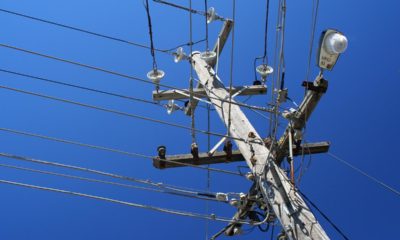- NERC Issues 40MW Licence as Power Generation Sheds 1,431MW
In a bid to further grow the country’s power generation, the Nigerian Electricity Regulatory Commission has issued a licence to Green Energy International Limited for the generation of 40 megawatts of electricity.
GEIL, which is the operator of the Otakikpo marginal field, received NERC’s embedded power generation licence for the 40MW plant just as the total quantum of electricity on the country’s power grid dropped by 1,431.1MW within two days.
Latest industry data obtained from the Federal Ministry of Power, Works and Housing on Wednesday showed that grid power dropped from a peak of 4,804.1MW on June 10, 2019, to a low of 3,373MW the next day.
The Director, Corporate Affairs, GEIL, Olusegun Ilori, said the licence that was issued Green Energy by NERCwas part of the measures aimed at growing the country’s power generation, adding that the licence was sequel to the company’s application for it.
He said the licence would enable the company to utilise its gas resources for power generation as part of its commitment to the Federal Government to use the gas from the marginal field for power and domestic gas projects.
The company, which had earlier secured a generation licence for 12MW, increased its projected power generation capacity to 40MW following the increase in associated gas that would be produced from enhanced oil production during the second phase of the Otakikpo field.
Ilori stated that in addition to providing electricity for the company’s field power requirements and the host communities, the 40MW power plant would provide power to the Otakikpo Industrial Park.
“The park will be sited in Ikuru town in Andoni Local Government Area, Rivers State and it’s being promoted by Atlantic Industrial Park Limited,” he said.
He outlined some of the projects to be located at the industrial park include an onshore oil terminal, a 5,000 barrels per day modular refinery and a mini-liquified natural gas plant that would serve the domestic market.
The Chairman, GEIL, Prof Anthony Adegbulugbe, commended the power sector regulator for approving the licence and stated that it underscored the government’s determination to increase access to electricity for the economic development of Niger Delta.
On power generation on the national grid, it was further observed that the lowest quantum of electricity so far recorded in June this year was 2,389.9MW and this figure was posted on June 7.
In their latest performance report about the sector, the Advisory Power Team in the Office of the Vice-President explained that gas constraint remained the major challenge to power generation across the country.
The APT said, “On June 10, 2019, average energy sent out was 3,680MWH/Hour, up by 179.42MWH/Hour from the previous day. 1,501MW was not generated due to unavailability of gas. 110MW was not generated due to unavailability of transmission infrastructure, while 758.8MW was not generated due to high frequency resulting from the unavailability of distribution infrastructure. 425MW was recorded as losses due to water management.”

 Forex2 weeks ago
Forex2 weeks ago


 Naira1 week ago
Naira1 week ago
 Naira4 weeks ago
Naira4 weeks ago
 Company News4 weeks ago
Company News4 weeks ago




 Naira1 week ago
Naira1 week ago




 Naira3 weeks ago
Naira3 weeks ago
 Billionaire Watch1 week ago
Billionaire Watch1 week ago




 Naira7 days ago
Naira7 days ago


















